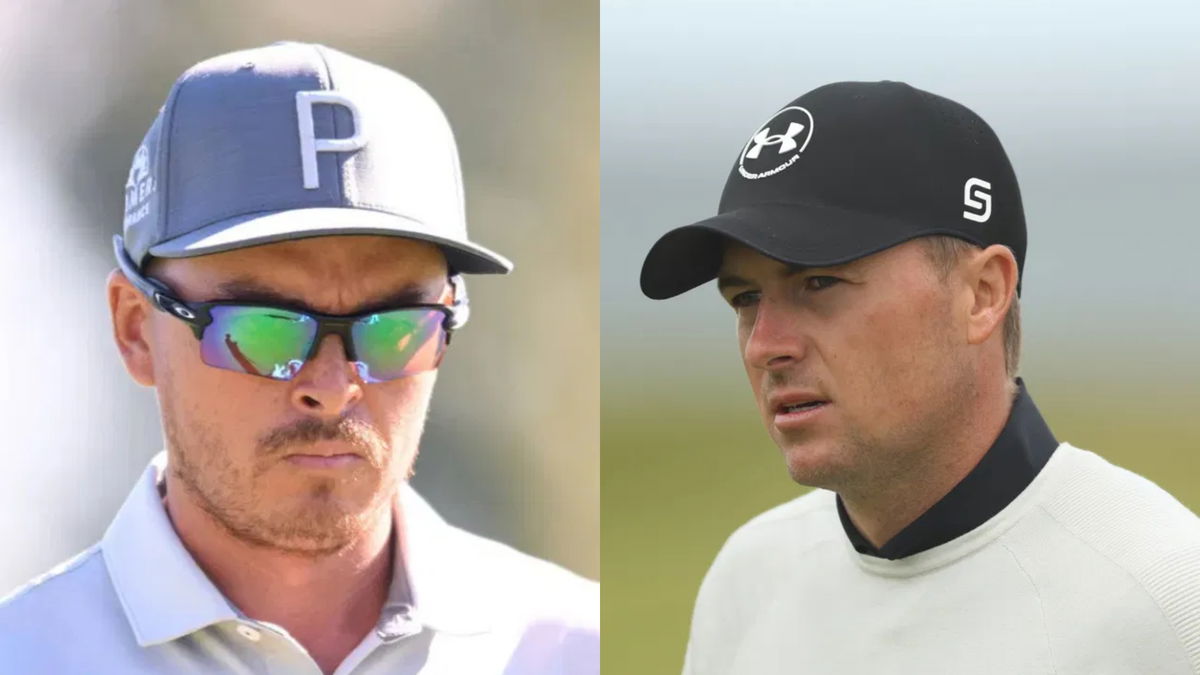
Imago
Source: IMAGO

Imago
Source: IMAGO
Rickie Fowler finished 101st in the 2024 FedExCup standings, far from the top 50 cut-off that grants automatic entry to the PGA Tour’s elite signature events. Yet somehow, he teed it up in six of them this season, thanks to the sponsor exemption. As expected, it didn’t sit right with many, including Brandel Chamblee.
Watch What’s Trending Now!
“And if we really do believe the PGA Tour is merit-based, then it shouldn’t be popularity-based to the extent that it is right now,” Chamblee noted on an episode of The Favorite Chamblee podcast. “I love them. I’d fight to have sponsor exemptions for them. But if it truly is going to be merit-based, and these signature events are that important, then there has to be a line.”
Signature events are, after all, the tour’s crown jewels. Limited fields, $20 million purses, and a spot reserved only for those who’ve earned it. But Fowler and Jordan Spieth’s presence sparked a question many fans were already asking: Has merit lost its meaning?
Fowler earned sponsor exemptions into six signature events in 2025, collecting more than $1.2 million and 319 FedExCup points from those starts. Those points accounted for nearly half of his season total. Spieth’s numbers told a similar story. He finished 73rd in 2024, then entered five signature events through sponsor exemptions. By season’s end, he’d gathered 319 of his 665 regular season points from those invites, or about 38% of his haul, according to one report.
Chamblee recognized Fowler’s solid game late into the season and his T7 at the Memorial, which he played as a sponsor invite. Still, his point stood—playing well once inside the gates doesn’t erase how you got invited in the first place.
Notably, this is not even the first time this has happened. In February this year, one insider had hardly minced words.
“I don’t think Ricky should be in, but I think Spieth warrants it,” he said on the No Laying Up podcast. “I have no issue with it, although I would be fine if they got rid of sponsor exemptions completely for the Signature Events.”
Nice to have one of my favorite people in golf media @kclairerogers on the pod… also talked about swing changes, Congaree, books, pros getting their amateur status back and sponsor exemptions into signature events. https://t.co/DIf5zk4ipN
— Brandel Chamblee (@chambleebrandel) November 5, 2025
That line, Chamblee argued, is being blurred by the very system designed to reward excellence.
PGA Tour’s exemption web already catches falling stars
He went deeper, outlining how many “safety nets” already exist for players. Win a regular PGA Tour event, and you get a two-year exemption. Win a major or The Players Championship, and you’re safe for five. Even finishing high enough on the career money list can keep a player around for years.
“So many safety nets already exist on the PGA Tour. If you can’t compete, you should be out. That’s just the nature of the game.”
Chamblee’s frustration wasn’t with individual stars, but with structure. If the Tour constantly cushions its veterans, it risks losing the very meritocracy it celebrates.
He then made a sharp distinction between regular events and signature ones. Smaller tournaments benefit from celebrity boosts—having someone like Fowler and Spieth add buzz and exposure. But the signature events already have the stars, the money, and the spotlight.
“If I’m putting up $25 million for a signature event, I already have the biggest names in the game. Why would I need sponsor exemptions there?”
Chamblee brought in the Masters reference. Augusta National doesn’t hand out sponsor exemptions. Every invite there is earned. And that, he argued, is why it stands apart.
At its heart, Chamblee’s criticism speaks to a growing tension in professional golf. The PGA Tour sells itself as a merit-based competition, yet it increasingly rewards marketable stars with alternate paths. It’s a clash between fairness and fan appeal, between what’s earned and what’s not.
Whether the Tour listens remains to be seen. As the 2026 season approaches, one thing is clear—Brandel Chamblee’s challenge has hit a nerve. The next chapter of golf’s merit debate is already heating up.


